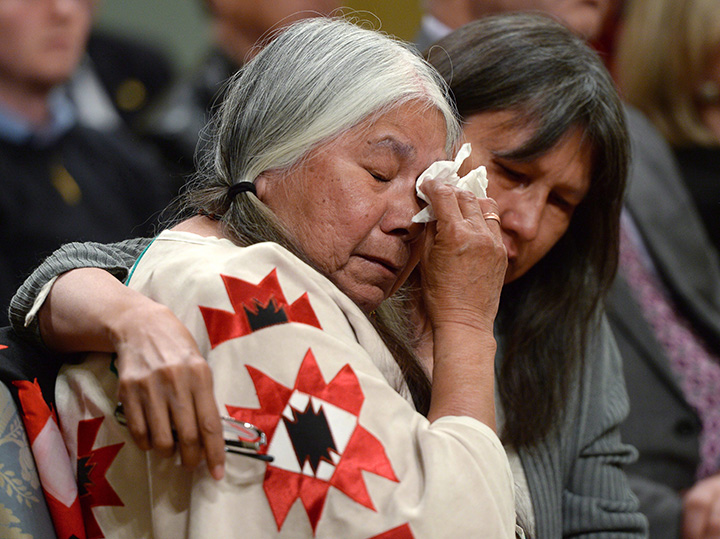TORONTO — A survivor of a notorious Indian residential school who became suicidal after his compensation claim was turned down will ask a court Wednesday to give him another chance to argue his case.

The Superior Court hearing could have substantial repercussions for other survivors, who may have been short-changed by the process designed to compensate them for the abuse they suffered.
“A substantial wrong and miscarriage of justice has occurred,” his application states.
“(The government) and lawyers for the Catholic church withheld relevant, trustworthy and corroborating evidence.”
The case involves a man identified only as claimant H-15019, who attended St. Anne’s residential school in Fort Albany, Ont.
Among other things, the man wants the court to find out why the federal government kept secret thousands of documents that could have supported his claim that he was sexually abused by a priest when he was forced to attend St. Anne’s as a child.
During the closed-door independent assessment hearing in 2013, lawyers for the Department of Justice, however, attacked his credibility and he was denied compensation. The process had been set up as part of an agreement that settled a lawsuit by victims of Indian residential schools against the federal government and Roman Catholic Church.
READ MORE: Residential schools commission concludes 4 years of public hearings
In his arguments, H-15019 maintains that government lawyers had thousands of documents in their possession that would have bolstered his claim. Those documents remained hidden.
Had the government made them available, the adjudicator “would likely have come to a different conclusion and rejected (the government’s) attacks on the credibility of the applicant,” his application states.
The records at issue – which would have shown the extent of the abuse at St. Anne’s — came from a lengthy investigation by provincial police in the early 1990s. The investigation identified numerous perpetrators and, in some cases, led to criminal prosecutions.
READ MORE: Ottawa ordered to produce residential school documents
Documents and survivor accounts show sexual and physical abuse was endemic at St. Anne’s: Supervisors beat ill children and forced them to eat their own vomit in the dining room. Some whipped them. Others built an electric chair that some children were strapped into and shocked.
Nevertheless, the government did not put forward any of that documentary evidence or results of the criminal investigation during the confidential claims adjudication.
The “narrative” about St. Anne’s during the process was a scant 12 pages. The government, under subsequent court order, produced a new narrative last year that is 1,200 pages long and which H-15019’s lawyer, Fay Brunning, argues should be made public. The new account summarizes the stories of about 1,000 former students.
READ MORE: Residential school survivors fight Ottawa
The behaviour of government lawyers at the closed-door claims hearings, H-15019 argues, violated the spirit of the agreement that settled the Indian residential school lawsuit.
For its part, the government maintains the new materials are irrelevant and inadmissible in terms of the compensation claims.
The application, formally known as a request for direction, also asks Superior Court Justice Paul Perell to order adjudicators to assess whether other claimants were unfairly denied compensation.



Comments